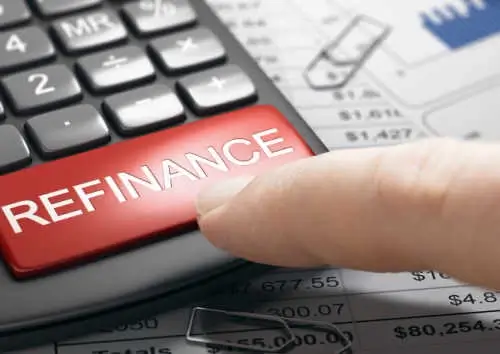

In today’s world it can be easy to rack up lots of high interest debt: credit card bills, student loans, auto loans, unexpected home repairs, etc. On top of all the debts, you have suffered through pre-recession and your utility bills, food bills, gas bills, insurance & taxes have all gone up at a seemingly back-breaking pace! If you are a homeowner, you are able to consolidate all that debt and make it easier to afford with a refinance loan. Here’s how it works and why it might be a good choice for you:
**We are seeing a rise in refinancing to pay off IRS tax debts this year! YES, we can pay off the IRS with your cash out funds!**
Call with your scenario!
What Is Debt Consolidation?
Debt consolidation means getting a new loan large enough to pay off all your other debt obligations. This gives you just one monthly payment to keep track of, helping you continue to make timely payments, and protecting your credit profile. Consolidation works best when you are able to get the cash you need, or when the new monthly payment is lower than the total of all the monthly payments on the debt that you are paying off. You can even benefit by refinancing to a higher rate on your 1st mortgage, in order to pay off all of your other higher debts, and also be able to take out cash for reserves, home improvement you need to accomplish, and to plan for "just in case" funds to have on hand if you or your significant other loses a job!(layoffs are on the rise)
We have a calculator that we can run for you to see your comparison of current debt payments versus a consolidated "ONE LOAN" new payment...please ask your mortgage specialist to send you a "Debt Consolidation Refi" comparison calculator.
How to Consolidate Your Debt with a Refinance Mortgage
As a homeowner, you can choose to replace your current mortgage PLUS pay off existing debts, PLUS take addtional cash out. This is technically called a Cash Out Refinance loan. The benefit of this plan is that your 1st mortgage interest rates are usually much lower than rates on other debt. For example, today’s mortgage rates range between 6%-7% while charges for carrying a monthly credit card balance can be as much as 29%. So not only do you trade several payments for just one, but you save yourself a ton in interest costs going forward. An additional benefit of paying off credit cards in most cases is that your credit score will also increase due to your revolving credit lines having lower utilization and the credit reporting bureaus will reward you with a higher credit score.
Cash Out Refinance Requirements
To be able to pull money out of your home in a refinance, you’ll need more than 20% equity. For example, that means if your home is currently worth $600,000, you’ll need your mortgage balance to be below $480,000. That is because most lenders want you to leave at least 20% equity in your home to keep plenty of “skin in the game.” This lowers your risk of default and helps protect the lender’s investment. The more equity you have, the more you’ll be able to cash out. (The exception is VA refinance loans; if you qualify for a VA loan you may be able to pull out up to 100% of your equity.)
For a conventional cash-out refi, you’ll also need to have a minimum credit score of 620. The FHA’s cash-out refinance program can work with credit scores as low as 500, and we see better luck above a 580 credit score. You can pull a free copy of your credit report from any of the three reporting agencies to find out your score before applying and we can discuss your results. You are able to obtain one free credit report per year by visiting: www.AnnualCreditReport.com.
Combining all your debt into one low-interest rate mortgage is a smart way to save money, and reduce the stress of fighting your debts. With a debt consolidation loan, you should be able to lower your monthly debt payments and get cash in hand for necessary reasons. You may be able to defer up to 2 monthly mortgage payments as part of your refinance process to give you a quick breather as well!
Call today to discuss a debt consolidation loan, and to have your Mortgage Specialist run the "Debt Consolidation Refi" calculator for you!
